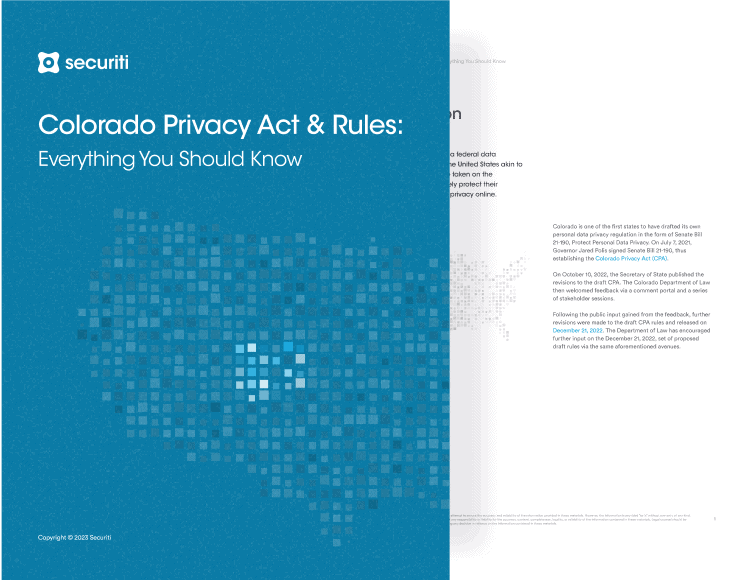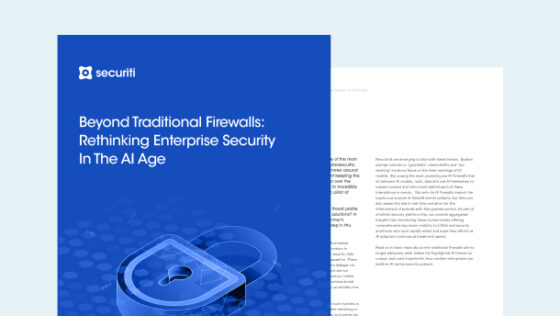The Colorado Privacy Act (CPA) enhances consumer privacy and data protection rights. It applies to data controllers that conduct business/produce/deliver commercial products and services within Colorado and specifically targets its residents, process the personal data of at least 100,000 Colorado consumers within a calendar year or derive revenue from the sale of personal data and process the personal data of at least 25,000 Colorado consumers.
The CPA also gives consumers the right to opt-out of having their personal data processed for targeted advertising, sale of their personal data, or profiling. Consumers also have the right to access, the right to correction, the right to deletion, and the right to data portability.
Securiti enables organizations to operationalize compliance with the CPA and avoid noncompliance penalties, where civil penalties could go up to $20,000 per violation.

















































